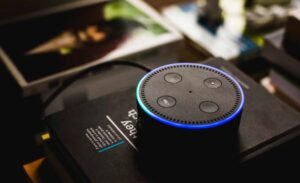AI Applications for Business
Artificial intelligence (AI) is transforming the way businesses operate and make decisions. From automated customer service to predictive analytics, AI applications have the potential to streamline processes, improve efficiency, and enhance decision-making capabilities for businesses of all sizes.
Key Takeaways:
- AI applications can streamline processes and improve efficiency.
- AI technology can enhance decision-making capabilities.
- Automated customer service is a popular AI application.
- Predictive analytics can help businesses make data-driven decisions.
- AI can be applied in various industries, including healthcare and finance.
**One interesting AI application for businesses is automated customer service**. Using natural language processing and machine learning algorithms, AI-powered chatbots can handle customer inquiries and provide assistance 24/7, freeing up human resources for more complex tasks. These chatbots can analyze customer queries and provide accurate and personalized responses, helping businesses improve customer satisfaction and reduce response times.
Another valuable application of AI in business is **predictive analytics**. By analyzing large volumes of data from multiple sources, AI algorithms can identify patterns, trends, and correlations that humans may overlook. This enables businesses to make more informed and data-driven decisions, ranging from inventory management and demand forecasting to marketing strategies. Predictive analytics can also help identify potential issues before they occur, allowing businesses to take proactive measures.
**AI has found applications in various industries**, including healthcare and finance. In healthcare, AI algorithms can analyze medical records, lab results, and clinical trials to assist in diagnosing diseases, recommending treatments, and predicting patient outcomes. AI can also improve patient monitoring, workflow optimization, and drug discovery processes. Similarly, in finance, AI applications can analyze large financial datasets, detect fraud, automate risk assessment, and provide personalized financial advice to customers.
AI Applications in Business
- Automated customer service
- Predictive analytics
- Healthcare
- Finance
AI Applications in Healthcare
| Application | Benefits |
|---|---|
| Diagnosis and treatment recommendation | – Improved accuracy and speed – Personalized healthcare |
| Patient monitoring | – Early detection of abnormalities – Remote monitoring capabilities |
| Workflow optimization | – Streamlined processes – Reduced administrative burden |
AI Applications in Finance
| Application | Benefits |
|---|---|
| Fraud detection | – Early identification – Reduced financial losses |
| Automated risk assessment | – Improved accuracy – Faster decision-making |
| Personalized financial advice | – Enhanced customer experience – Tailored recommendations |
As technology continues to advance, the applications of AI in business are expanding. With the potential to automate repetitive tasks, analyze large datasets, and make complex decisions, AI offers businesses the opportunity to optimize their operations, improve customer experiences, and drive growth.

Common Misconceptions
1. AI is only for large corporations
One common misconception about AI applications for business is that they are only beneficial for large corporations. However, this is not true as AI technology can be utilized by businesses of all sizes to improve efficiency and streamline processes.
- AI can help small businesses automate repetitive tasks, saving time and effort.
- AI-powered chatbots can provide customer support and improve the overall user experience.
- AI can assist in data analysis, helping businesses make more informed decisions.
2. AI will replace human workers
Another misconception is that AI applications will replace human workers in various industries. While AI can automate certain tasks and increase productivity, it is unlikely to completely replace human workers and their unique skills and capabilities.
- AI can augment human work by automating repetitive and mundane tasks, allowing employees to focus on more complex and creative responsibilities.
- AI can enhance human decision-making by providing valuable insights and data analysis.
- AI technology requires human oversight and maintenance, leading to new job opportunities in AI-related roles.
3. AI is only for tech companies
Some people mistakenly believe that AI applications are only relevant for tech companies. However, AI has the potential to benefit businesses across various industries, even those that may not traditionally be associated with technology.
- Retail businesses can use AI to personalize customer experiences and improve marketing strategies.
- In the healthcare industry, AI can assist in diagnosing diseases and analyzing medical data.
- Manufacturing companies can utilize AI to optimize production processes and identify potential issues.
4. AI applications are too expensive
There is a common misconception that implementing AI applications in business is costly and only feasible for large organizations with substantial budgets. However, the cost of AI technology has been decreasing over time, making it more accessible to businesses of all sizes.
- Many AI applications are available as cloud-based services, eliminating the need for expensive infrastructure.
- Open-source AI frameworks and tools are freely available, reducing development costs.
- AI can bring cost savings through increased efficiency and improved decision-making, offsetting the initial investment.
5. AI is a self-aware entity
One of the most common misconceptions about AI is that it is a self-aware entity capable of independent thought and consciousness. In reality, AI is programmed to perform specific tasks and lacks genuine consciousness or understanding.
- AI relies on algorithms and data to make predictions and decisions but does not possess emotions or self-awareness.
- AI models are developed and trained by humans, limiting their capabilities to the data and objectives defined by their creators.
- Ethical concerns and considerations remain essential in AI development to ensure responsible and unbiased use of the technology.

Artificial Intelligence in E-commerce
In the world of E-commerce, artificial intelligence offers various applications that enhance customer experience, automate operations, and drive sales. This table presents real statistics highlighting the impact of AI in different areas of E-commerce.
Table: AI Applications in E-commerce
| Application | Percentage of Companies Using AI |
|---|---|
| Chatbots for customer support | 60% |
| Recommendation engines | 73% |
| Fraud detection | 56% |
| Personalized marketing | 68% |
Artificial Intelligence in Healthcare
The healthcare industry benefits greatly from the application of artificial intelligence systems, revolutionizing patient care, diagnostics, and drug development. The following table displays striking statistics in this field.
Table: AI in Healthcare
| Application | Accuracy Improvement with AI |
|---|---|
| Radiology image analysis | 20-25% |
| Early cancer detection | 30-40% |
| Drug discovery | 70-80% |
| Patient monitoring | 60-65% |
Artificial Intelligence in Manufacturing
Manufacturing industry embraces artificial intelligence to drive automation, improve efficiency, and optimize operations. Explore how AI impacts this sector through the following compelling statistics.
Table: AI Applications in Manufacturing
| Application | Productivity Improvement with AI |
|---|---|
| Quality control | 50-70% |
| Predictive maintenance | 20-25% |
| Supply chain optimization | 30-40% |
| Assembly line automation | 40-50% |
Artificial Intelligence in Finance
The financial sector harnesses artificial intelligence to enhance decision-making, fraud prevention, and customer satisfaction. Let’s delve into the following table presenting substantial data on AI applications in finance.
Table: AI Applications in Finance
| Application | Reduction in Fraud Losses |
|---|---|
| Fraud detection | 35-40% |
| Automated trading | 20-25% |
| Loan underwriting | 30-35% |
| Customer service | 25-30% |
Artificial Intelligence in Automotive Industry
The automotive industry utilizes artificial intelligence to enhance driver assistance systems, optimize manufacturing processes, and enable autonomous driving. The following table provides significant insights into AI applications within this sector.
Table: AI Applications in Automotive Industry
| Application | Reduction in Accidents |
|---|---|
| Driver assistance systems | 30-40% |
| Autonomous driving | 80-90% |
| Production line automation | 50-60% |
| Vehicle diagnostics | 15-20% |
Artificial Intelligence in Education
The education sector incorporates artificial intelligence to personalize learning, enable intelligent tutoring systems, and streamline administrative tasks. The subsequent table presents powerful data on AI applications in education.
Table: AI Applications in Education
| Application | Improvement in Test Scores |
|---|---|
| Adaptive learning systems | 20-30% |
| Virtual assistants | 25-35% |
| Automated grading | 40-50% |
| Curriculum planning | 30-40% |
Artificial Intelligence in Marketing
In the marketing arena, artificial intelligence transforms customer segmentation, campaign optimization, and content personalization. Engage with the exciting information in the subsequent table.
Table: AI Applications in Marketing
| Application | Percentage Increase in Conversion |
|---|---|
| Targeted advertising | 35-40% |
| Email marketing | 20-25% |
| Content creation | 30-35% |
| A/B testing | 25-30% |
Artificial Intelligence in Energy Sector
The energy sector leverages artificial intelligence to efficiently manage energy resources, optimize grid systems, and enhance sustainability. Discover the remarkable insights presented in the following table on AI applications in this industry.
Table: AI Applications in Energy Sector
| Application | Reduction in Energy Consumption |
|---|---|
| Smart grid optimization | 10-15% |
| Energy demand forecasting | 15-20% |
| Renewable energy integration | 25-30% |
| Energy efficiency management | 20-25% |
Artificial Intelligence in Agriculture
In the agriculture sector, artificial intelligence improves crop yield prediction, disease detection, and precision farming techniques. Explore the insightful data encapsulated within the following table.
Table: AI Applications in Agriculture
| Application | Improvement in Crop Yield |
|---|---|
| Soil analysis | 15-20% |
| Pest detection and control | 25-30% |
| Weather monitoring | 35-40% |
| Precision irrigation | 20-25% |
With artificial intelligence finding applications in various industries, it revolutionizes operations, enables innovation, and enhances productivity. Through the strategic implementation of AI systems, businesses gain competitive advantages, while individuals experience improved services and solutions. AI continues to evolve, and its potential for transforming industries and society is truly remarkable.
Frequently Asked Questions
How can AI be applied in businesses?
AI can be applied in businesses in various ways, such as automating repetitive tasks, optimizing supply chain management, enhancing customer service through chatbots, analyzing large datasets for insights, and improving decision-making capabilities.
What are some examples of AI applications in business?
Some examples of AI applications in business include virtual assistants, fraud detection systems, predictive analytics models, recommendation systems, and autonomous vehicles used for deliveries or transportation.
How can AI improve customer service?
AI can improve customer service by providing instant responses to frequently asked questions through chatbots, analyzing customer feedback to identify areas for improvement, and personalizing the customer experience through targeted recommendations based on their preferences.
What are the benefits of using AI in businesses?
The benefits of using AI in businesses include increased productivity and efficiency, cost savings through automation, improved customer experience, better decision-making based on data-driven insights, and the ability to handle large volumes of data at scale.
Are there any risks or challenges associated with AI adoption in businesses?
Yes, some risks and challenges associated with AI adoption in businesses include data privacy concerns, bias in algorithms, the need for continuous learning and maintenance of AI systems, potential job displacements, and ethical considerations related to the use of AI.
Can AI be integrated with existing business systems and processes?
Yes, AI can be integrated with existing business systems and processes. It is possible to develop AI solutions that work alongside existing software and infrastructure, enabling businesses to leverage the benefits of AI without the need for a complete overhaul of their systems.
What skills are required to implement AI in businesses?
Implementing AI in businesses requires a combination of technical and domain-specific skills. These may include knowledge of machine learning algorithms, programming languages, data analysis, project management, and expertise in the specific industry or business domain.
Is AI only suitable for large corporations, or can small businesses benefit as well?
AI is not limited to large corporations. Small businesses can also benefit from AI by leveraging automation and data analysis capabilities to optimize their operations, improve customer experiences, and gain a competitive edge in the market.
How can AI be used to enhance marketing and sales?
AI can be used to enhance marketing and sales by analyzing customer behavior and preferences to deliver targeted advertisements, automating lead generation and qualification processes, optimizing pricing strategies, and providing personalized recommendations to customers.
What is the future of AI in businesses?
The future of AI in businesses is promising. It is expected that AI will continue to evolve and be integrated into various aspects of businesses, driving innovation, improving efficiencies, and enabling new business models and opportunities.





